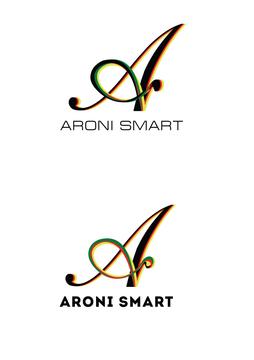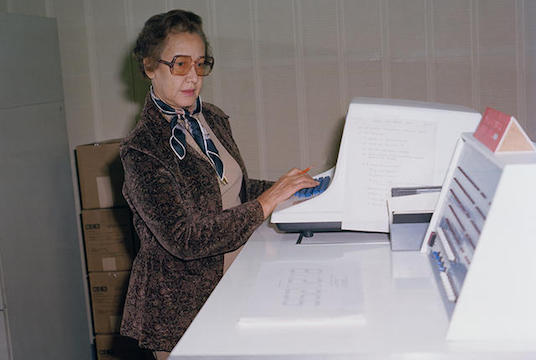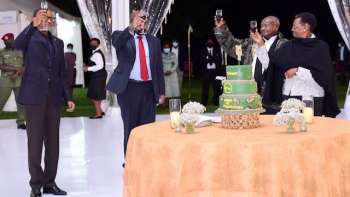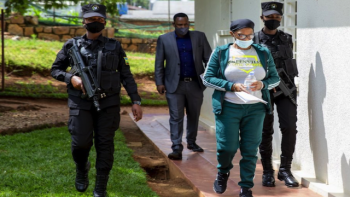Katherine Coleman Goble Johnson, known as the NASA mathematician, physicist, and scientist, used her math genius to guide to and land Apollo 11 on the moon and bring it back to earth (see AfroAmerica Network: Katherine Globe Johnson, Black Woman and NASA Scientist Depicted in Hidden Figures, Dies at 101). As NASA chief Charles Bolden, put it Katherine "advanced Human Rights with a slide rule and a pencil", and the "frontier of human achievement at the same time." Yet, she was only postumously awarded the Hubbard Medal, the National Geographic Society's highest recognition, for her extraordinary contributions in the fields of science and exploration, the same medal as the one the astronauts she helped received 51 years ago.
Despite the delay, the medal is yet another sigh of how much she impacted Humanity and Human Rights, against all odds. At the time of her birth, on August 26, 1918, the odds of reaching the human achievements of her life, were remote at the best, if not impossible. It was the time when women were not encouraged to pursue high degrees or math and sciences. Moreover, Katherine Johnson was a Black woman, born in a segregated America. Yet, she overcame all these odds.
Commenting on the award, National Geographic Society CEO Jill Tiefenthaler said: "We are honored to present Katherine Johnson the Hubbard Medal, the National Geographic Society's highest recognition, for her extraordinary contributions in the fields of science and exploration. Fifty years ago, the Apollo 11 astronauts were awarded with the medal, and we’re honored to recognize the mathematician whose precise calculations made those flights possible. Katherine's legacy of exploration, innovation and inspiration lives on, and we are in awe of her remarkable achievements."
Following her dad's lesson that, whether Black or woman, she was as good as anybody, after graduating from high school at 14, she enrolled in college and graduated from West Virginia State University at 18, when Blacks were not given opportunities to go beyond 8th grade, let alone to college. She excelled in mathematics and perfected Geometry.
Upon graduation, she taught math in High School in rural Virginia until she joined NASA Langley Research Center as part of a group of women known as "human computers", tasked with checking and validating calculations made by then advanced computers, but now considered as rudimentary.
Among the "human computers" were also two other African-American women: the mathematician and computer scientist Dorothy Vaughan and the mathematician and aerospace engineer Mary Jackson. For the Apollo 11 mission, Katherine Johnson was given the critical role of calculating orbital trajectories and flight times relative to the position of the moon and to validate computer estimates. Her motto has been that "In mathematics your are either right or you are wrong." She was right and her manual calculations matched those from the computers.
NASA, Apollo 11 crew, the American people, and the World saw the humanity's achievement of landing on moon and coming back. What most did not know, and perhaps better at the time given the perception of Blacks and Women by the society, was that the mission depended on the calculations by a Black, African-American woman, Katherine Johnson.
On November 24, 2015, Katherine Johnson, then 97, the Black woman who propelled Human Rights and Humanity, thanks to her abilities and math genius, right as math can be, received the Presidential Freedom medal from President Barack Obama, the first African-American president. On May 5, 2016, at Langley Research Center in Hampton, Virginia, a research center, rightly named Katherine G. Johnson Computational Research Facility was dedicated to her.
She sang in a church choir for 50 years and has great-grandchildren. She was featured in the biographical drama film, Hidden Figures, in which stars Empire's Cookie, Taraji P. Henson.
INFLUENCING BLACK STUDENTS TODAY
Katherine Johnson’s work, achievements and legacy have been an inspiration for Black children and women to follow their dreams in science and technology and to excel and become scientists.
@AfroAmerica Network.

















